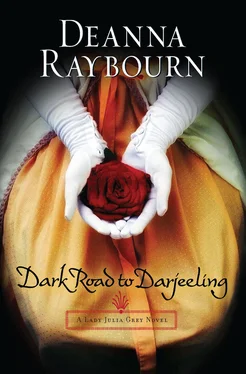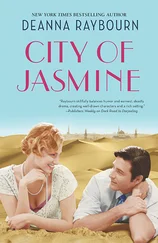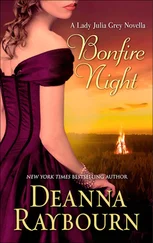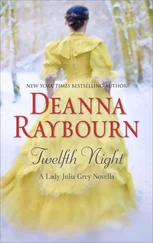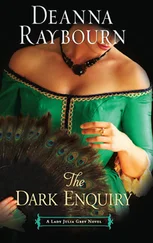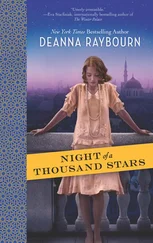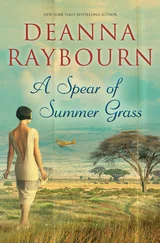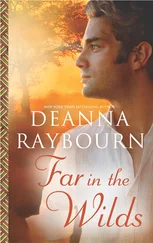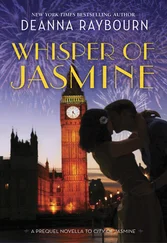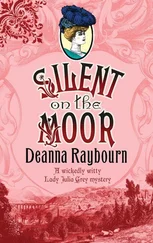1 ...7 8 9 11 12 13 ...20 “No, Grandfather Fitz had a bit of the poet about him, no doubt a relic of his Irish blood. He called her Camellia after the plant upon which he meant to build his fortune—the camellia sinensis. Tea,” he explained, lifting his cup.
“What a charming thought,” I said, even as I reflected to myself that anyone less flowerlike would be difficult to imagine.
“Yes, well.” His lips twitched as if he was suppressing the same thought. “Uncle Conor married and Freddie came along shortly after. Then Uncle Conor and his wife were killed in a railway accident in Calcutta.”
“How dreadful! Was Freddie very old?”
Harry Cavendish shrugged. “Still in skirts. He had no memory of them. Grandfather Fitz fetched him here to be brought up, the same as he did for me when my parents died.” A faint smile touched his mouth. “Nothing so dramatic as a railway accident, I’m afraid. An outbreak of cholera. Within the span of two years, Grandfather Fitz had two orphaned grandsons to bring up. If Aunt Camellia ever had the opportunity to marry, she gave it up to stay at the Peacocks and keep matters in hand.”
“A noble sacrifice,” I observed.
Harry pitched his voice lower. “If you promise not to repeat it, I will tell you I think she has been quite contented with her lot as a spinster. She has ruled this particular roost with a very firm hand. She had the sole running of the tea garden for a few years when Grandfather Fitz began to fail.”
“When Freddie was still in England?”
“Yes. They sent him to school at fifteen and he made up his mind not to come home again.”
“I remember. He called upon my father,” I commented, deftly omitting Father’s response to his visit. “But surely fifteen was rather late to leave it. Oughtn’t he have been sent much earlier?”
“Oh, yes, most folk here send their boys back home at age six or seven for schooling. Freddie made do with Grandfather Fitz’s library and the odd bit of tutoring here and there.”
He pressed his lips together again, and suddenly I became more interested in what he was not saying.
“And you never went home to England?”
“Never. My home is here,” he said simply. “I am a planter. Tea is all I know and all I care to know. Aunt Camellia left the place in my hands when she went to England to fetch Freddie home. It was the happiest time of my life,” he said, his tone touched with something more than wistfulness.
“When was that?” I spoke softly. He seemed to be slipping into a reverie, and I had watched Brisbane question enough people to know that in such a state all a subject requires is the gentlest nudge to reveal rather more than he might have preferred.
“Two years past. Freddie was in trouble—gambling, I am afraid. Aunt Camellia had almost persuaded Grandfather Fitz to cut him off entirely, but he was still the heir. Aunt Camellia hoped he would learn to love the business if he were brought home and made to apply himself. So she went to England to persuade him to return with her. She failed. She returned home without him, and it took only a little more persuasion to convince Grandfather Fitz to withdraw Freddie’s allowance until he had proven himself worthy of the inheritance. Grandfather Fitz issued an ultimatum. Freddie was to marry and return to India as soon as possible if he held any hope of inheriting the estate.”
“That is why he married Jane so hastily,” I murmured.
Emotions warred upon his face. “I confess, I did not think them well suited,” Harry Cavendish said. “I like Jane—immensely. But she is so different from what Freddie was. There is something fine about Jane.”
“Yes, that’s it precisely. She is simple and plain and good. Like water or earth,” I agreed.
“That is why I am glad you have come, you and Lady Bettiscombe, particularly. A lady should have the comfort of old friends about her at such a time.” Whether he meant during her widowhood or confinement, I could not say, but it was a pretty sentiment either way.
The conversation turned—rather naturally, I supposed—to tea then, and the coming harvest. The picking was very likely going to commence in a day or two, and I could see from his rising excitement that tea did indeed flow through his veins. But as we spoke, I sensed again an undercurrent of melancholy in him. It was nothing I could have pointed out to another, no peculiarity of manner or speech, but it was there, hovering just behind his eyes, some fear or sense of loss. And as I listened to him enthuse about the harvest, I wondered precisely how far this charming young man would go to become master of the land he loved.
After breakfast I excused myself to the garden where I found Miss Cavendish still busily decapitating plants. She was dressed in a curious fashion, her costume cobbled together from bits of native dress, traditional English garments, and a pair of gentlemen’s riding breeches. It was a thoroughly strange, but eminently practical ensemble, I supposed, and when she bent, I noticed her chatelaine still jangled but there was no telltale creak of whalebone. She had forgone the corset, and I envied her.
The garden itself was a glory, neatly planned and beautifully maintained. At the heart of it was a pretty arbour covered in climbing roses just about to bud. As lovely as it was in spring, I could imagine how enchanting it would be in full summer, with the heavy blossoms lending their lush fragrance to the air as velvety petals spangled the seat below.
“You must be quite proud,” I told Miss Cavendish. “Have you a gardener as well to help with the heavy labour?”
“Half a dozen,” she answered roundly. “It is a planters’ obligation to give employment to as many folk as possible, like young Naresh there,” she added with a nod toward a youth who had just come into the garden pushing a barrow. He responded to his name with a broad smile, and I was startled to see how handsome he was. One does not expect a young Adonis to appear in the guise of a gardener’s boy. He was tall for his age, perhaps sixteen or seventeen and very nearly six feet tall, and his features were regular, with a wide smile and a shock of sleek black hair. He looked like a young rajah, and as we regarded him, he gave us an exaggerated, courtly bow before he departed.
“Silly boy,” Miss Cavendish said, flapping her hand. “Still, I do not ask of them what I cannot do myself and I do like to keep my hand in. Very wholesome for the body, fresh air and exercise, you know,” she added with a quick glance in my direction. I had little doubt she thought me entirely too refined. My hands were soft and white and my corset prevented all but the most restricted movement.
“Indeed,” I murmured. “I cannot imagine there is a garden in all the valley half so fine as yours.” The praise, thick as it was, seemed to go down smoothly. She unbent from her clipping and gave me a grudging nod.
“Well, that is true. Now, mind you the Reverend Penny feather keeps a very pleasant garden at the Bower with a rather nice collection of orchids, if one likes that sort of thing,” she added. I had little doubt she did not. Orchids were clearly too exotic and showy for her liking.
“The Reverend Pennyfeather? Have you a church in the valley then?”
“Not as such. The Reverend gave up a very nice living in Norfolk to come here and take up his late brother’s tea garden. He thought he would make a go of it, but of course there’s more to tea planting than putting a bush into the ground and calling it done,” she advised me, her blue eyes snapping. “I have offered him good advice, and to his credit, most of it he has taken. But he does not keep a firm hand upon his pickers, and they take advantage of him in terrible ways.”
“Really?” I asked. I bent and began to gather a few of the fallen blossoms. She nodded in approval.
Читать дальше
